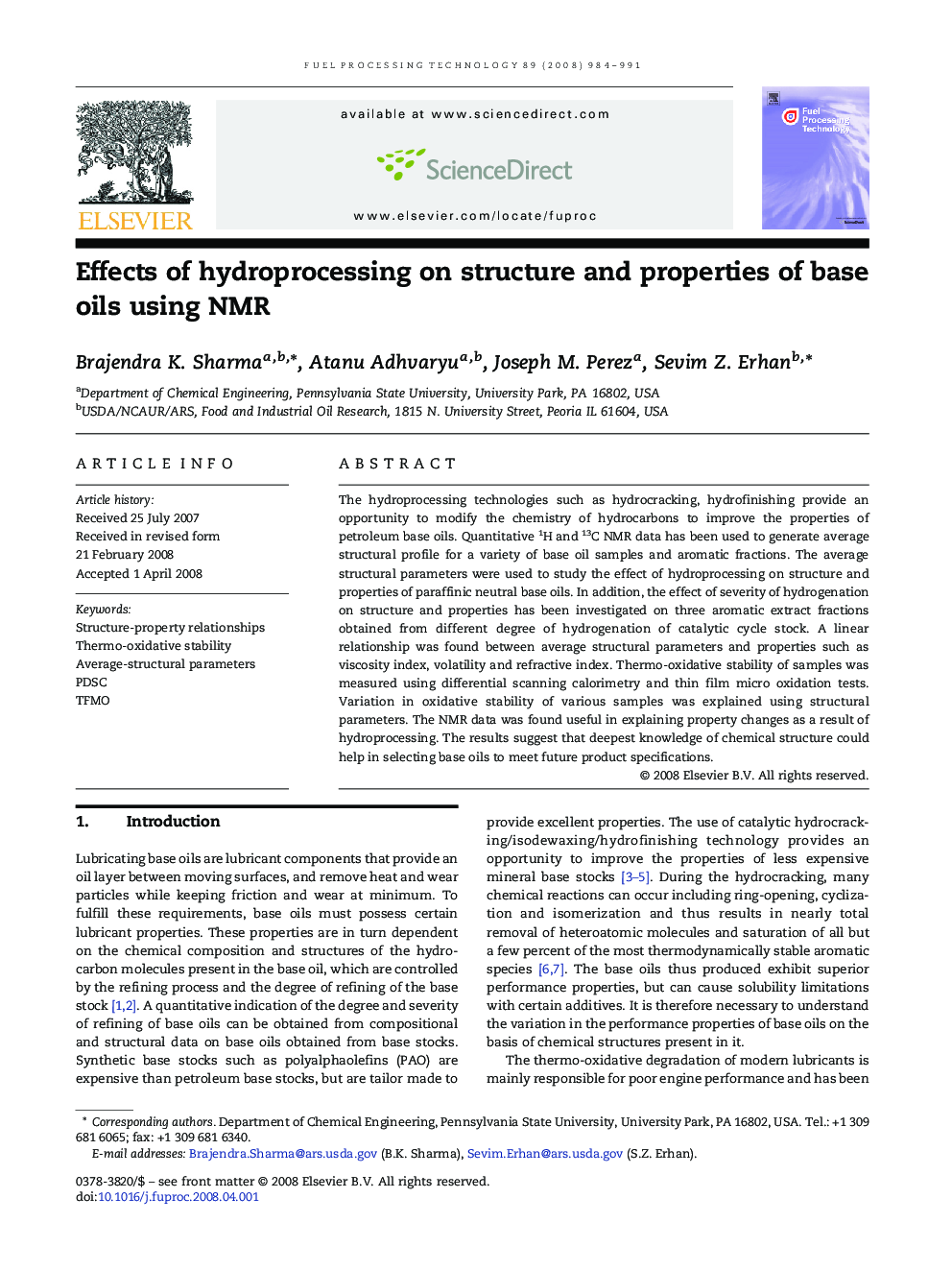| Article ID | Journal | Published Year | Pages | File Type |
|---|---|---|---|---|
| 211180 | Fuel Processing Technology | 2008 | 8 Pages |
The hydroprocessing technologies such as hydrocracking, hydrofinishing provide an opportunity to modify the chemistry of hydrocarbons to improve the properties of petroleum base oils. Quantitative 1H and 13C NMR data has been used to generate average structural profile for a variety of base oil samples and aromatic fractions. The average structural parameters were used to study the effect of hydroprocessing on structure and properties of paraffinic neutral base oils. In addition, the effect of severity of hydrogenation on structure and properties has been investigated on three aromatic extract fractions obtained from different degree of hydrogenation of catalytic cycle stock. A linear relationship was found between average structural parameters and properties such as viscosity index, volatility and refractive index. Thermo-oxidative stability of samples was measured using differential scanning calorimetry and thin film micro oxidation tests. Variation in oxidative stability of various samples was explained using structural parameters. The NMR data was found useful in explaining property changes as a result of hydroprocessing. The results suggest that deepest knowledge of chemical structure could help in selecting base oils to meet future product specifications.
